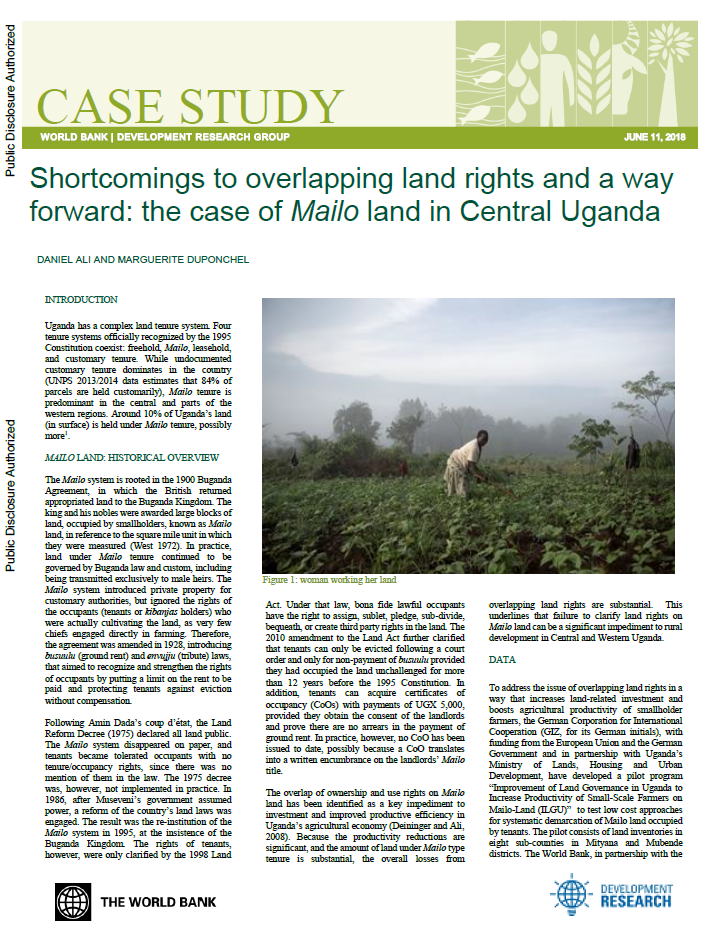How Land Administration Standards Empower People, Environment, and Economic Progress
Carbon Markets and Climate Justice: How Carbon Trading Frameworks Can Protect Community Land Rights
Case Study - Shortcomings to overlapping land rights and a way forward: the case of Mailo land in Central Uganda
Uganda has a complex land tenure system. Four tenure systems officially recognized by the 1995 Constitution coexist: freehold, Mailo, leasehold, and customary tenure. While undocumented customary tenure dominates in the country (UNPS 2013/2014 data estimates that 84% of parcels are held customarily), Mailo tenure is predominant in the central and parts of the western regions. Around 10% of Uganda’s land (in surface) is held under Mailo tenure, possibly
more.
Policy Paper - Self-financing model for the scaling of customary land services in Uganda
This paper presents the pilot experiences with a contributory model to customary land registration in Northern Uganda and discusses the potentials, challenges, and recommendations for further scaling up. The pilot was implemented between November 2021 - February 2023 in Bululu sub-country – and is continuously backstopped and monitored by the GIZ implemented “Responsible Land Policy in Uganda “(RELAPU)” project. The so-called “Bululu self-financing pilot” is built on prior project experience in “Fit for Purpose” (FFP) land demarcation and registration of customary land in rural settings.
National Lands Policy
Collective tenure rights and climate action in sub-Saharan Africa
The study on collective tenure rights and climate action in sub-Saharan Africa aims to consolidate and analyse the state of the evidence on how tenure arrangements – in particular collective ownership and management of forests operating in complex systems of contingent factors – impact forest condition outcomes, as well as livelihood outcomes of forest dwellers in sub-Saharan Africa.




